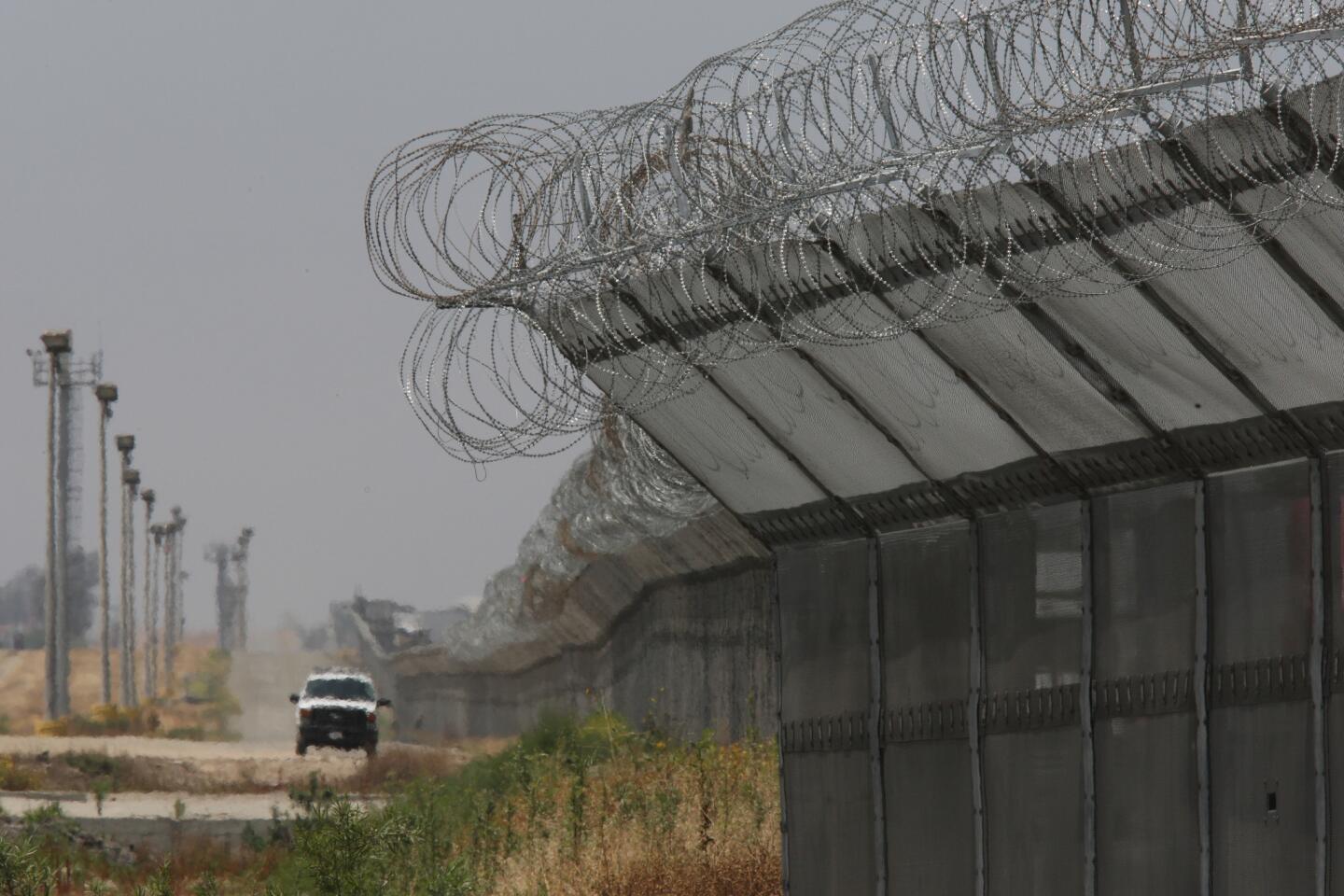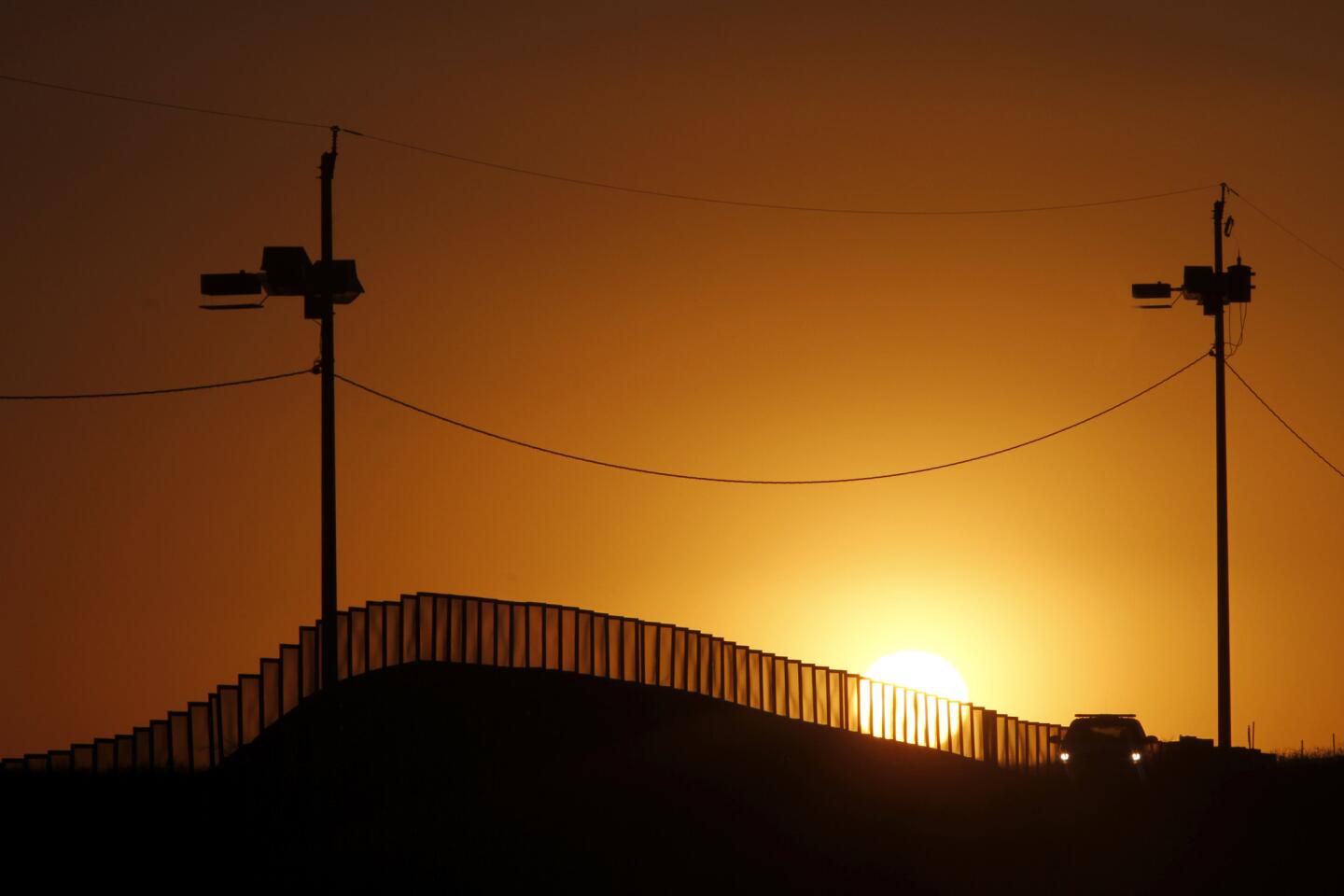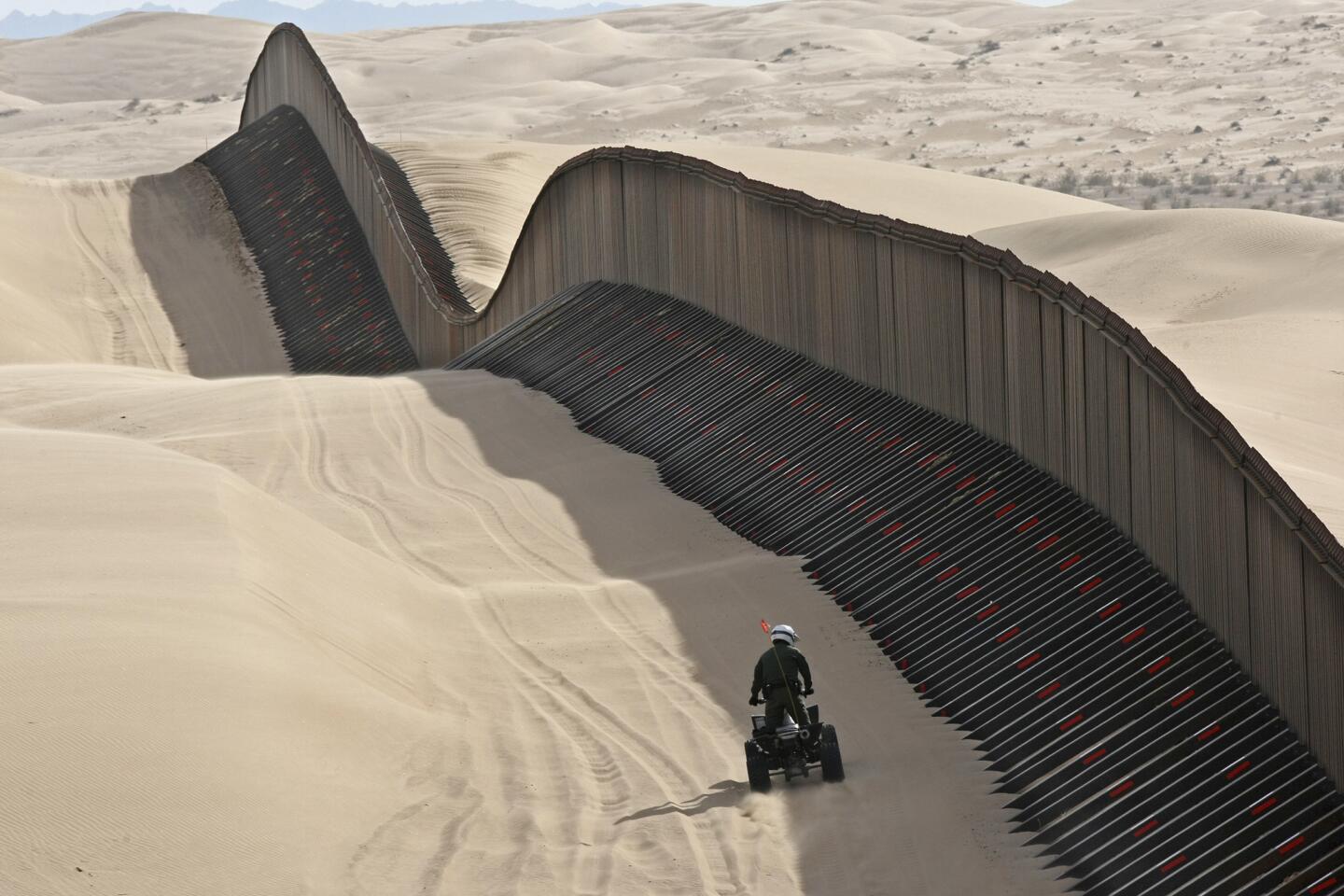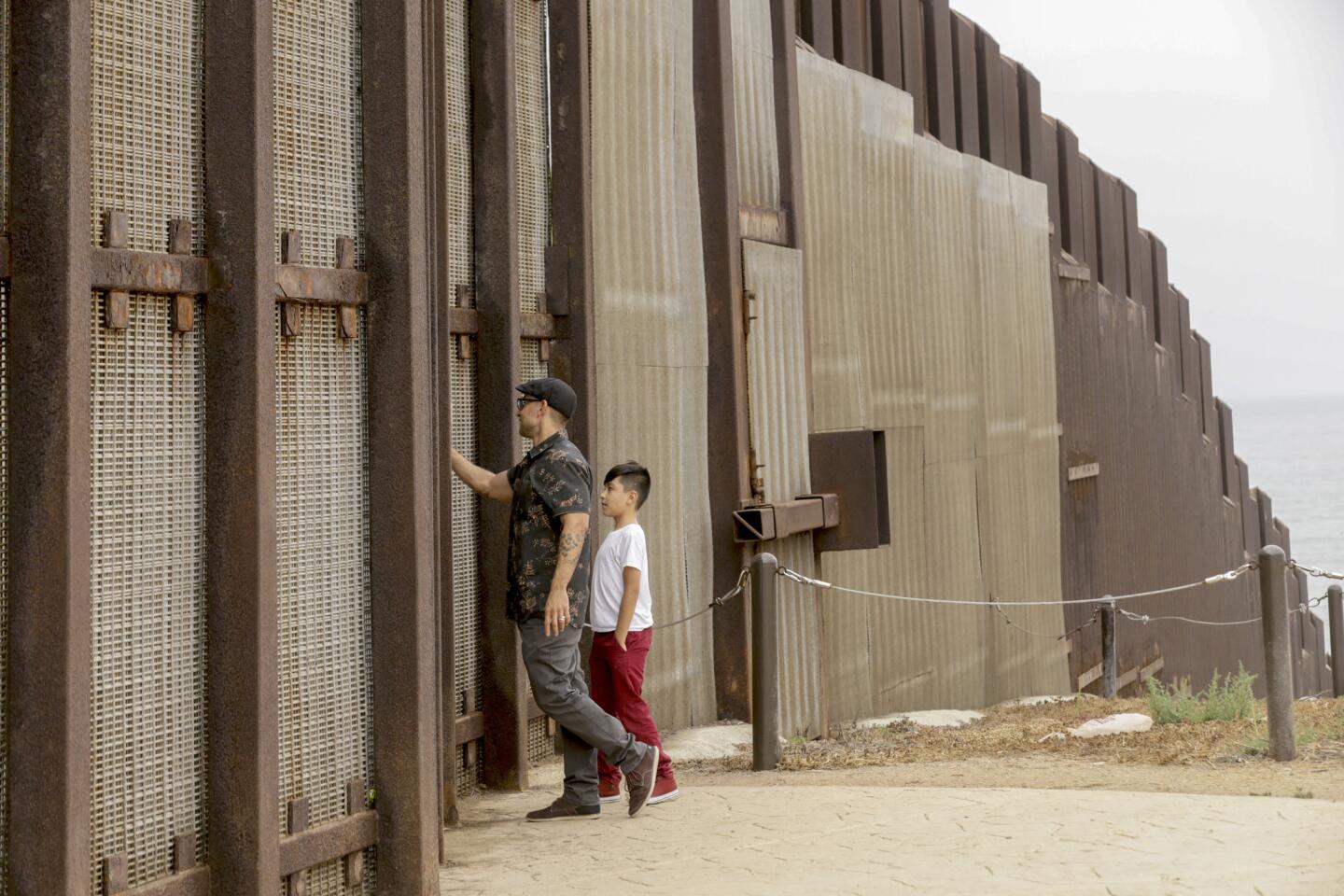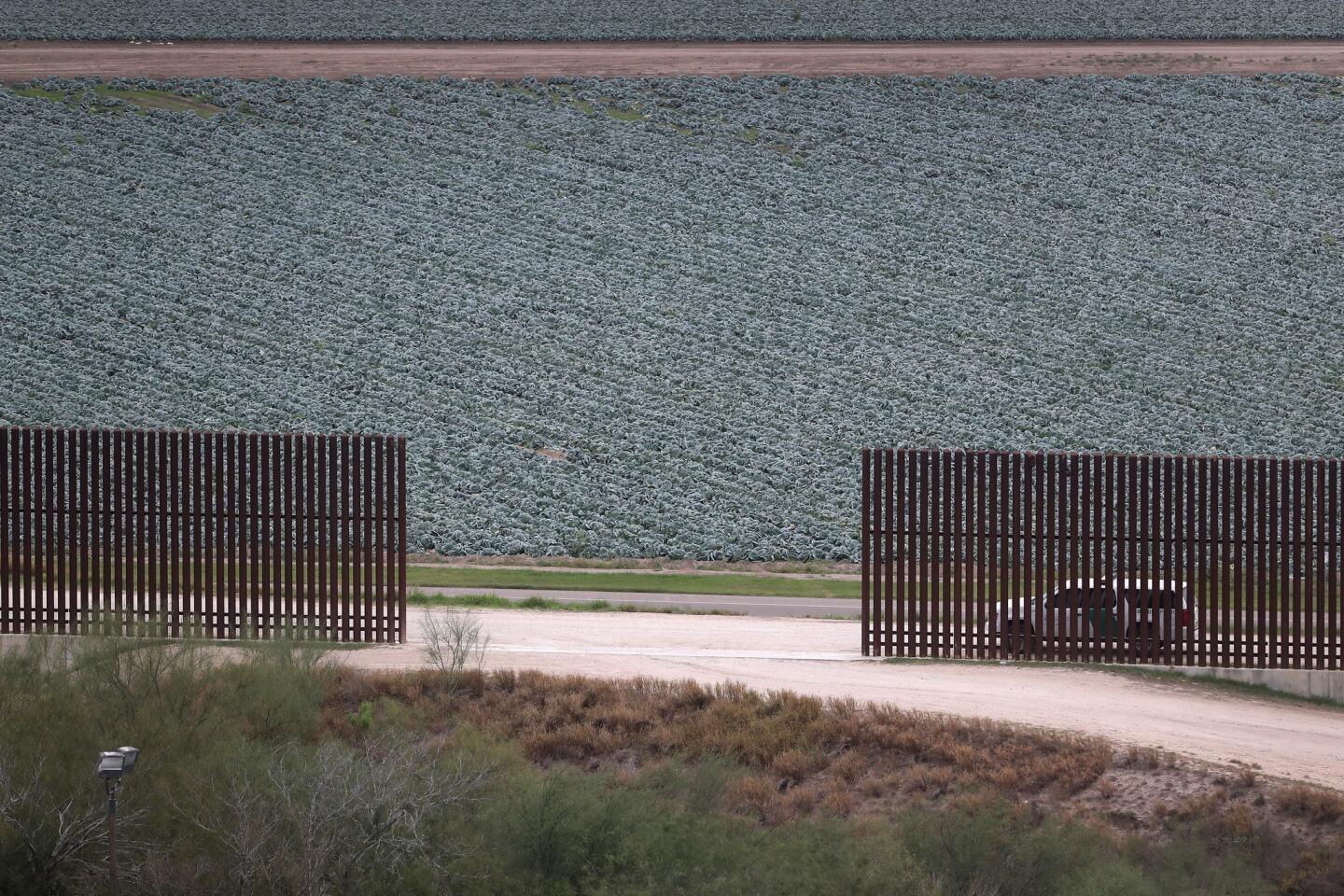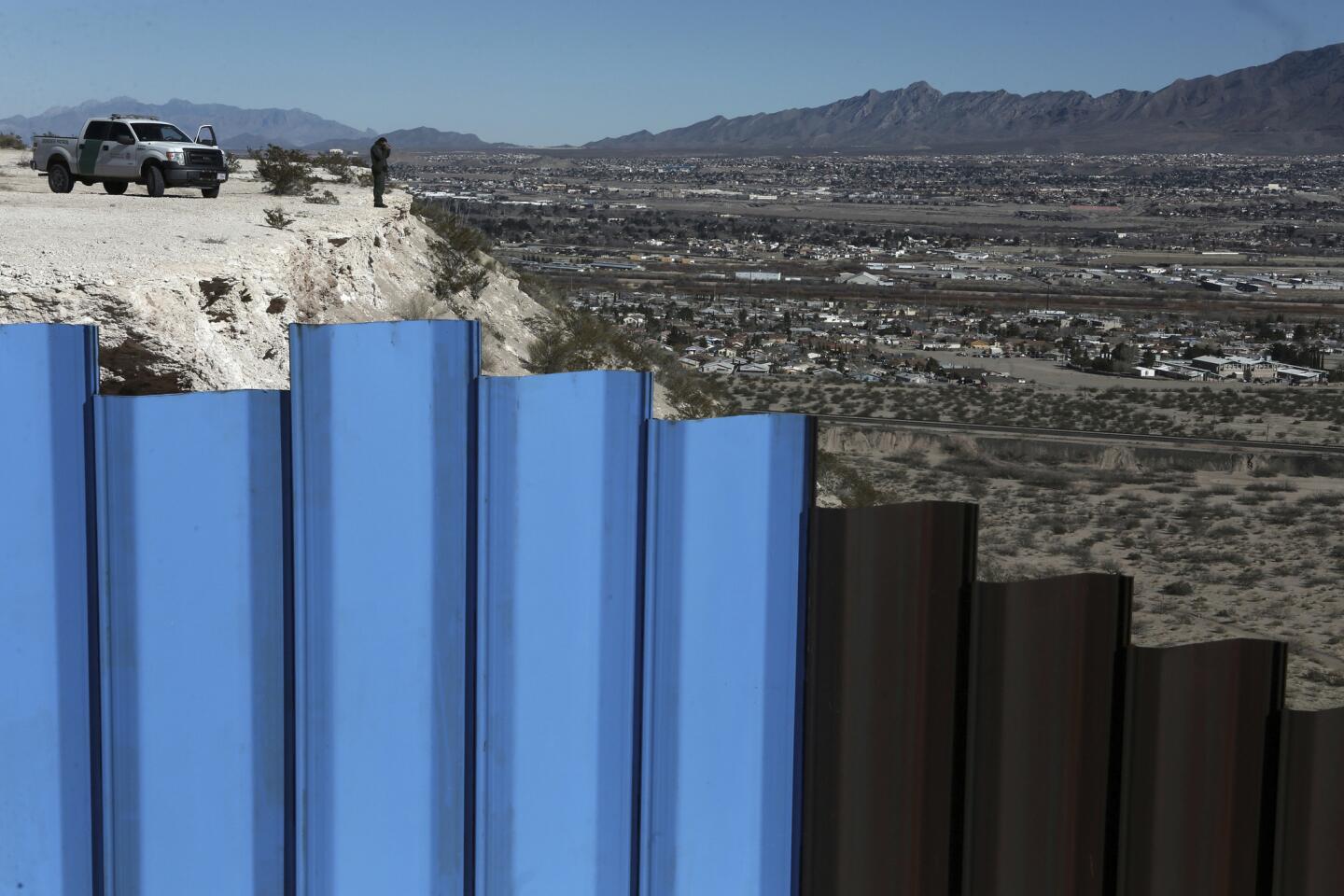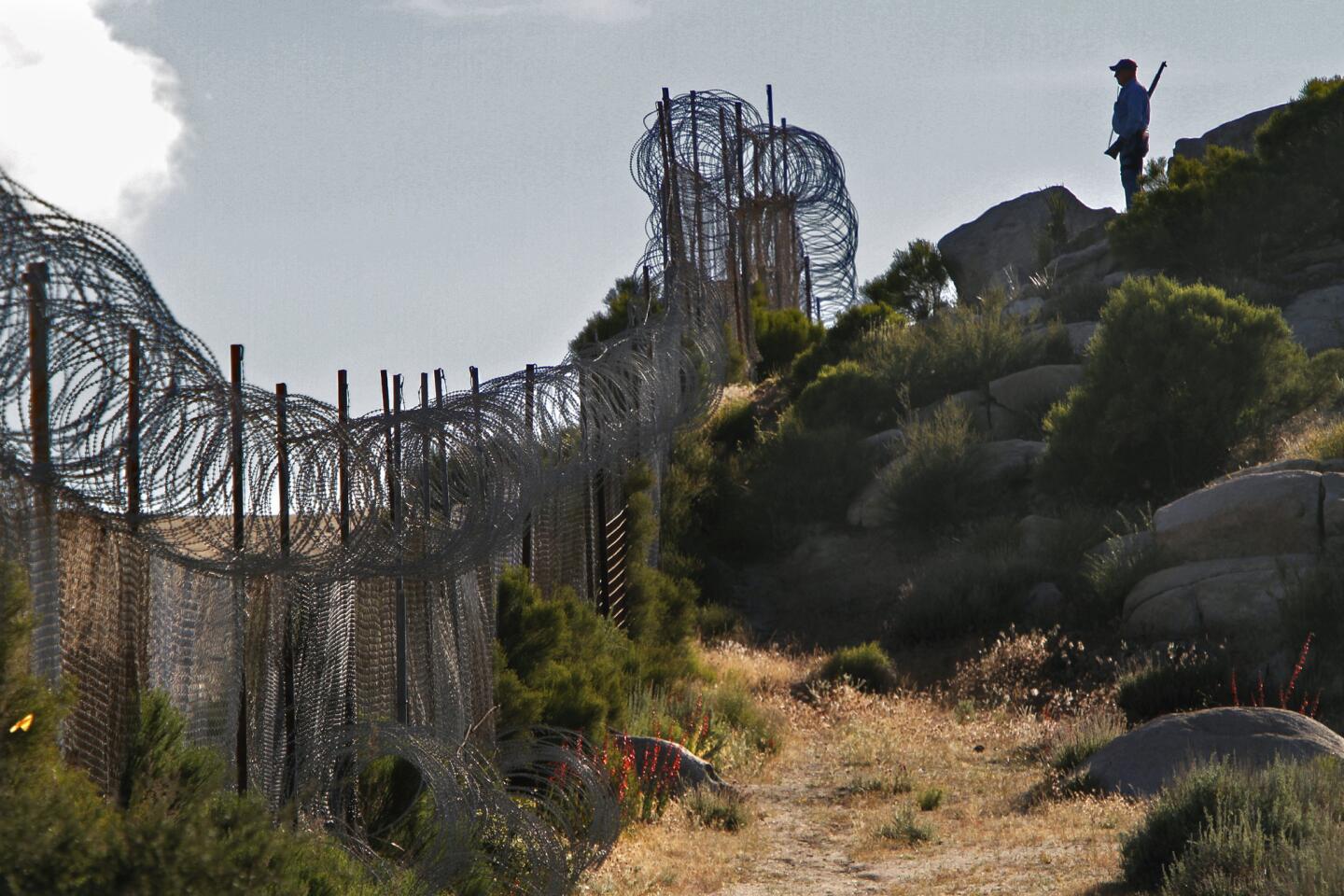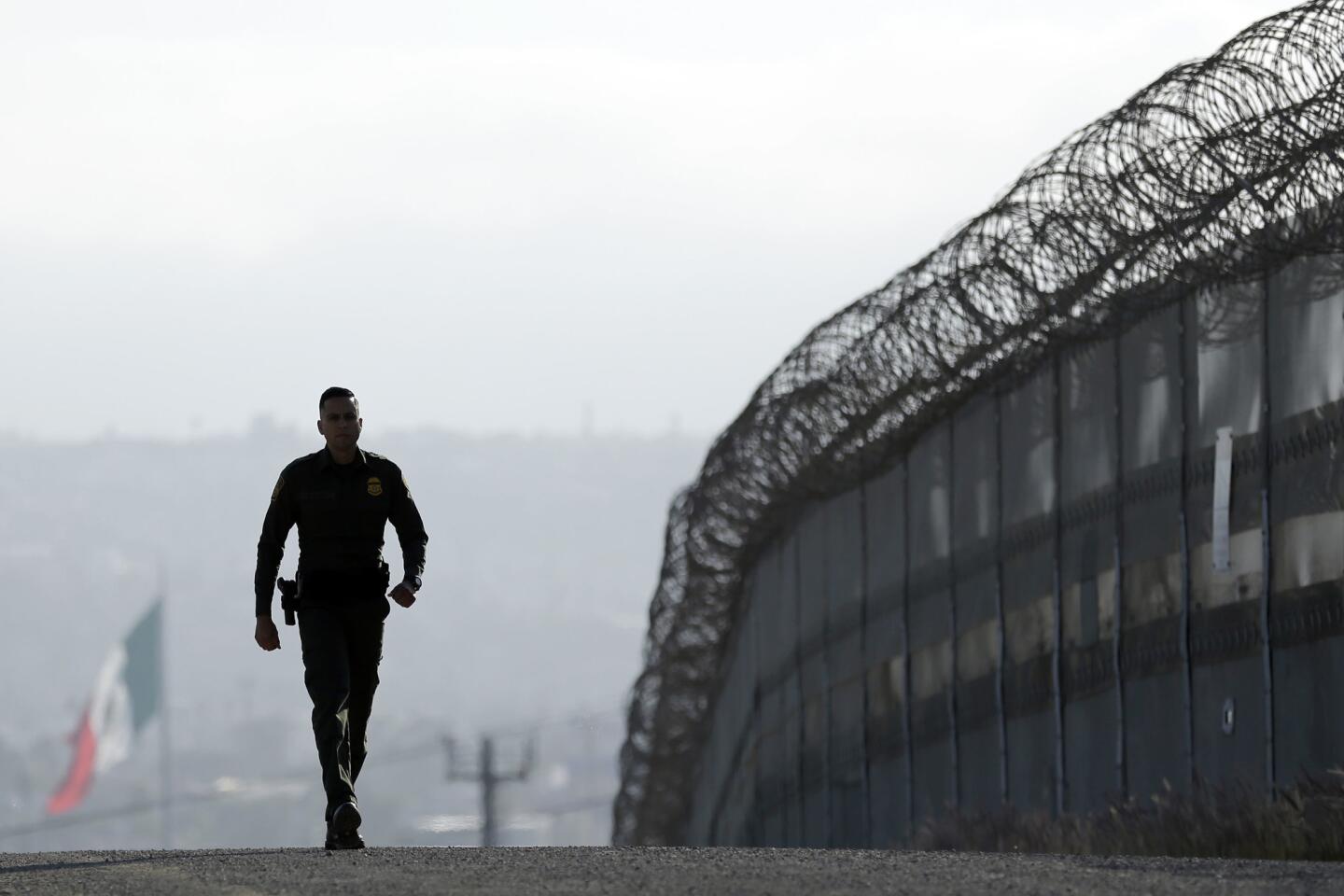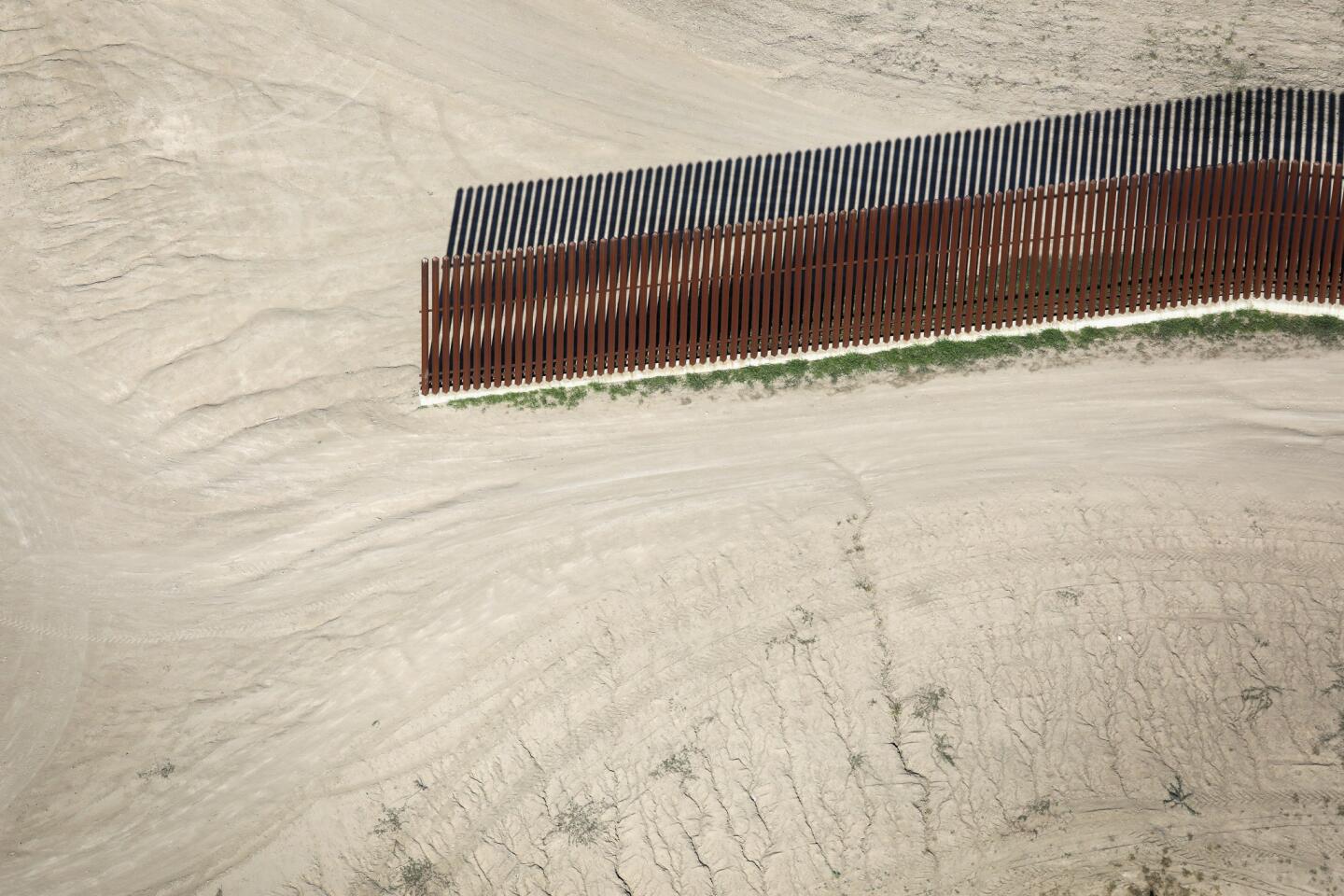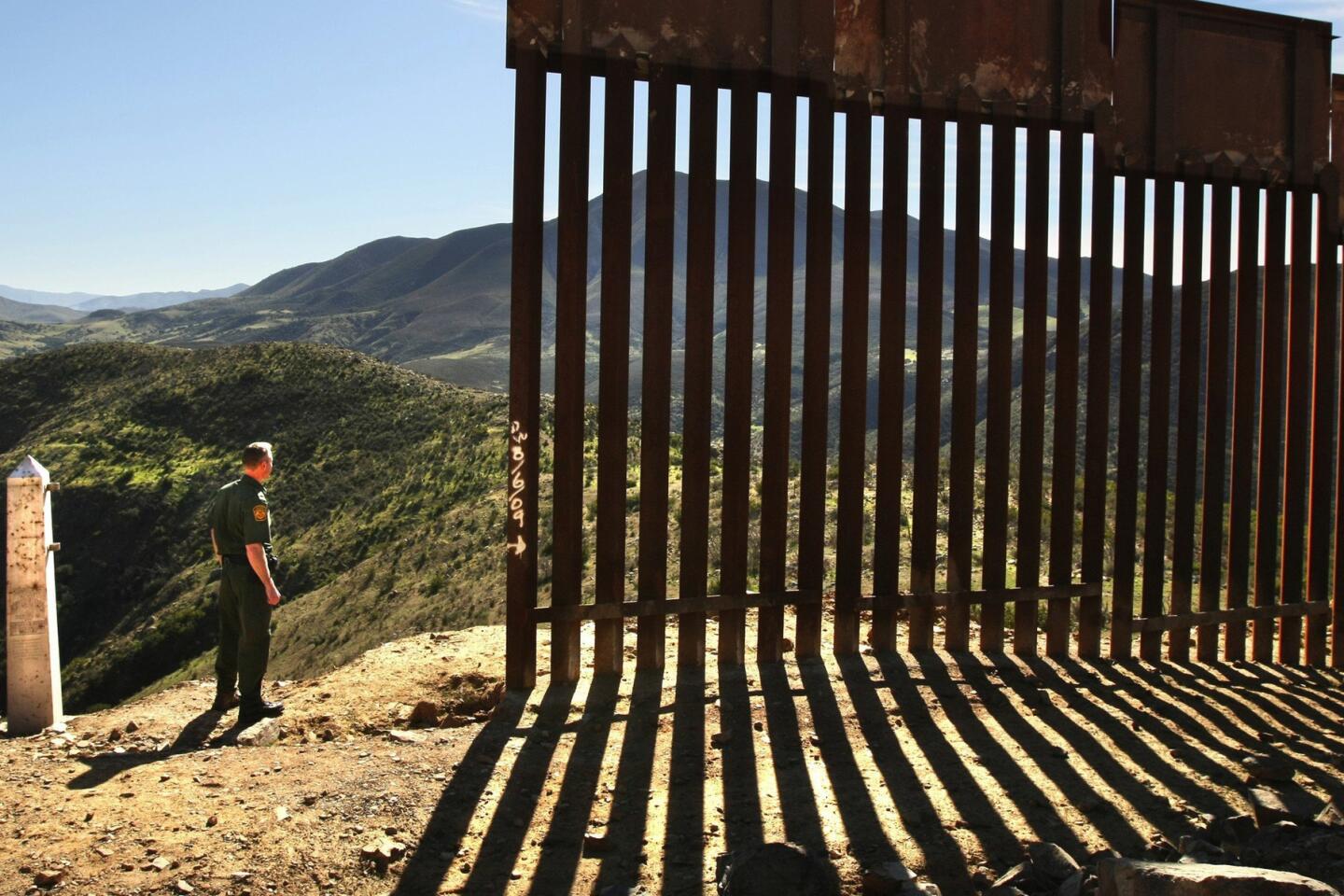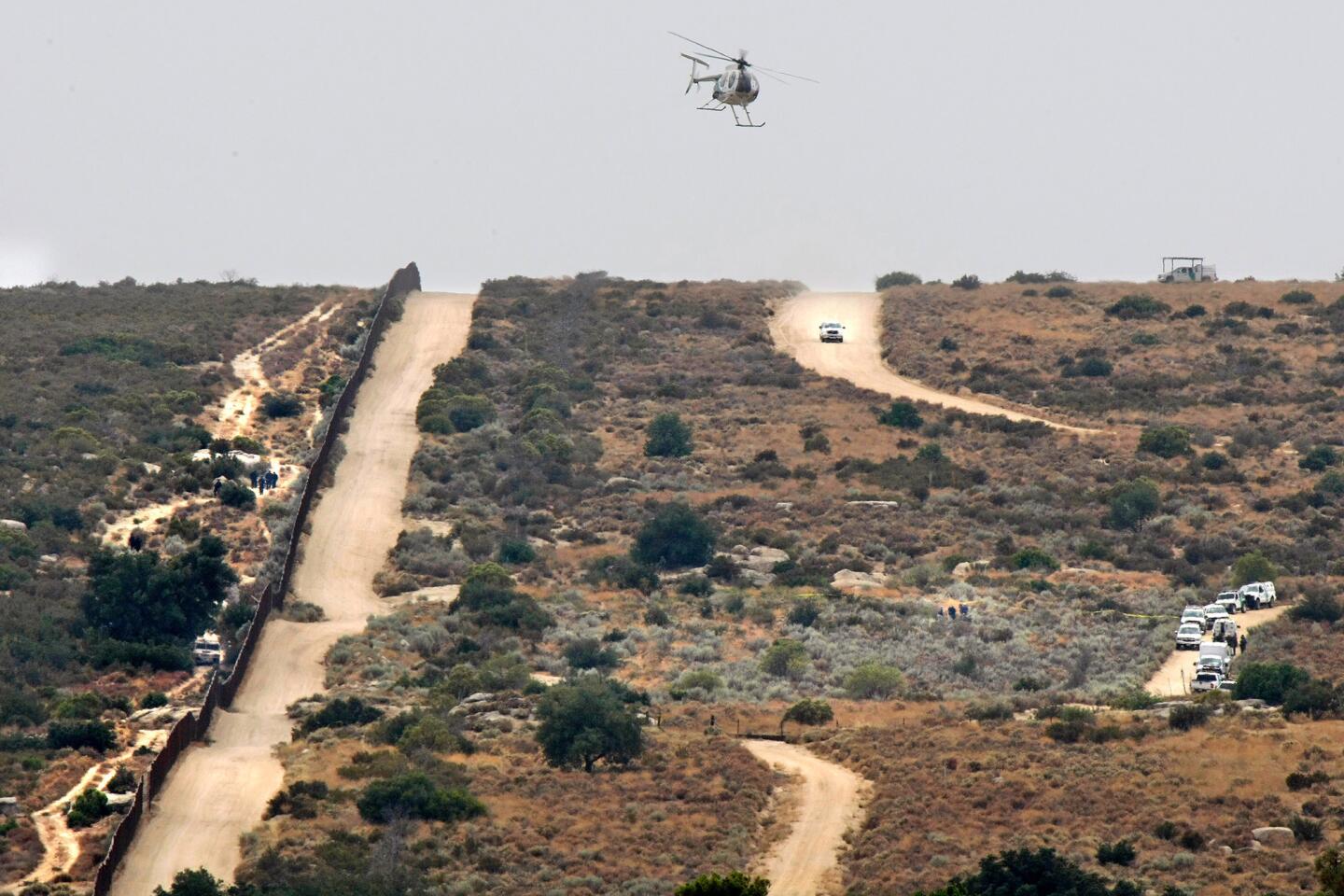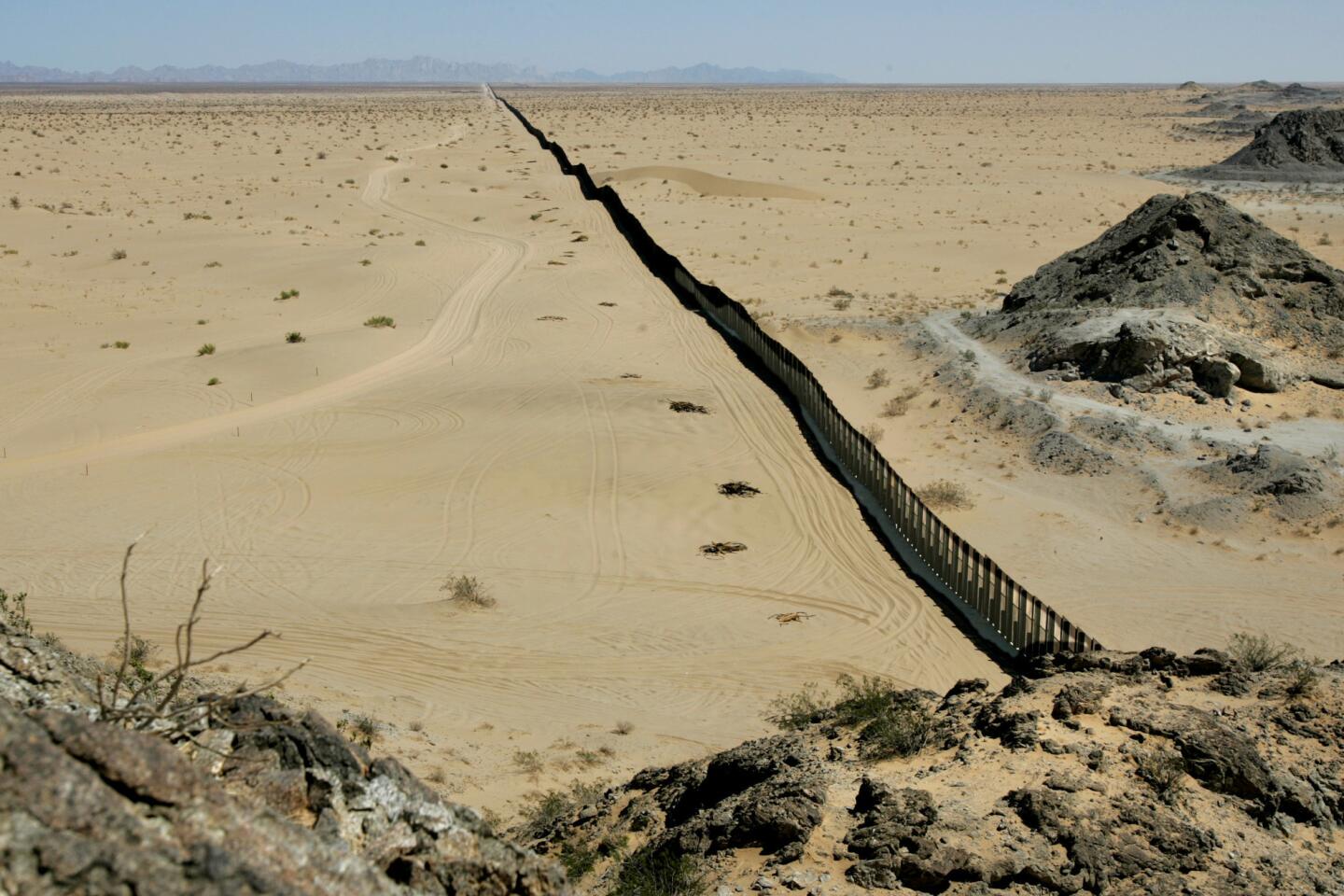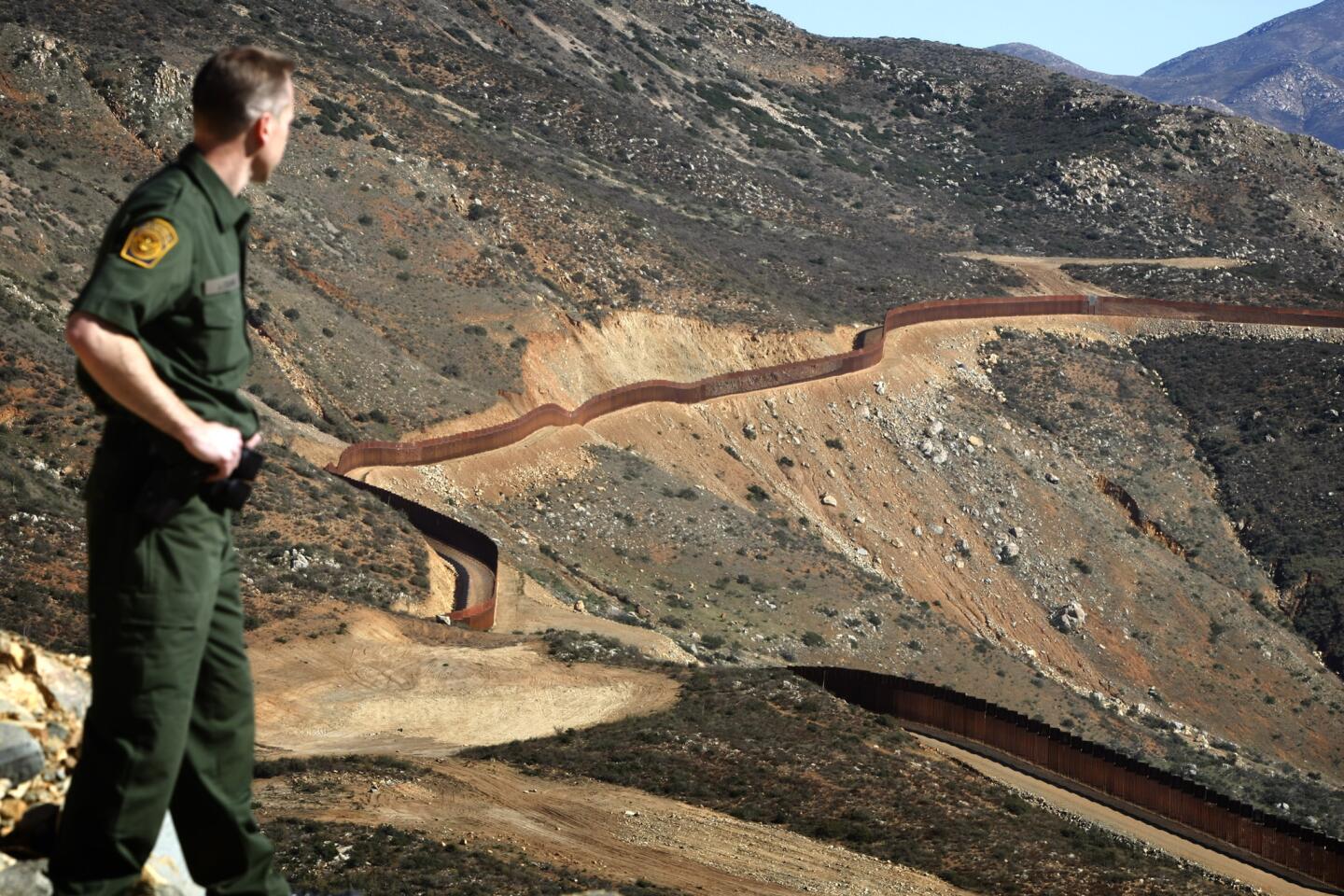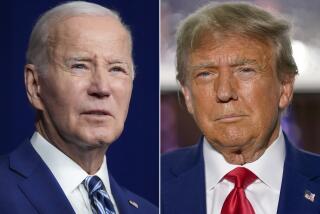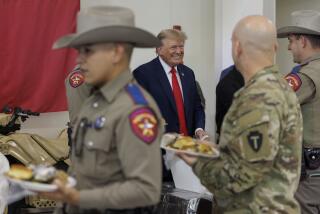Trump’s order to begin wall construction opens wider rift with Mexico
President Trump’s executive order to immediately start construction of a border wall has widened his rift with Mexico and placed pressure on Mexican President Enrique Peña Nieto to boycott a meeting with Trump planned for next week.
On Wednesday, Trump directed the Department of Homeland Security to begin building a wall along stretches of the southern border where a barrier does not already exist.
In what political analysts and many Mexicans viewed as a stinging affront, the order came the same day that Mexico’s foreign secretary, Luis Videgaray, arrived in Washington for talks with White House officials on trade and other issues ahead of Pena Nieto’s planned visit.
“It’s a slap in the face that he did this on the very day that Videgaray arrived in the United States to negotiate the terms of the relationship,” said Laura Carlsen, the director of the Americas Program at the Center for International Policy.
“Donald Trump is saying, ‘I will negotiate all of the terms because I don’t care about Mexico.’”
That was the message that many Mexicans heard from Trump the presidential candidate, who insulted Mexican immigrants as drug dealers and rapists and repeatedly vowed to keep them out, forcing Mexico to pay for the construction of a border wall.
Armando Rios Piter, a senator with Mexico’s leftist opposition Democratic Revolution Party, called Trump’s announcement Wednesday “a hostile act.”
Rios was one of dozens of Mexican politicians and leaders who on Wednesday called on Peña Nieto to cancel a meeting with Trump that the White House had said would take place on Tuesday.
Roberto Gil Zuarth, a senator with the opposition National Action Party, said support for a boycott of the meeting was broad. “We will unite all the political forces of this country to send a very clear message to the U.S. government and to President Trump that we will not tolerate being offended, being mistreated and our country’s image being damaged,” he said.
Peña Nieto’s office never confirmed the meeting after the White House announced it several days ago, and on Wednesday a spokesman for the Mexican president said he did not know whether it would take place.
Peña Nieto canceled a trip to the Dominican Republic on Wednesday, leading some analysts to speculate that he stayed home to monitor the situation with Trump.
As recently as this week, the Mexican leader called for dialogue with Trump, who paid him a visit during the campaign last fall.
Those overtures have hurt Peña Nieto domestically, with many Mexicans alleging that he has tried too hard to placate Trump.
The Mexican president’s approval ratings now hover at 12%. Polls suggest that Trump is among the few politicians that Mexicans despise more.
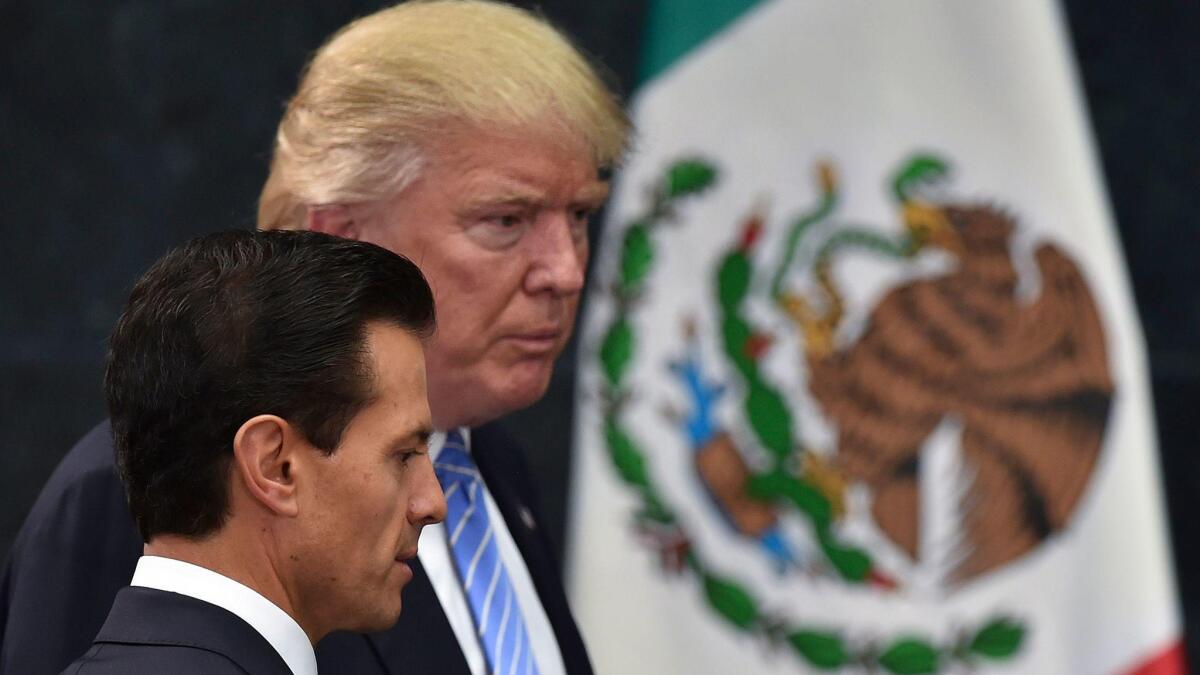
Jitters over what Trump’s rise means for Mexico’s economy have fueled a sharp depreciation of the national currency. The peso has weakened more than 20% in the last year, from about 18 pesos per U.S. dollar in January 2016 to nearly 22 pesos per dollar today.
Trump has pledged to renegotiate the North American Free Trade agreement, enact a border tax on Mexican imports and halt remittances sent home by immigrants living in the U.S.
Mexico has vowed to retaliate, suggesting it could stop cooperating with the U.S. on immigration and security enforcement or take the U.S. to court if it violates the long-standing trade agreement. This week, Mexico’s finance secretary threatened to withdraw from NAFTA if the demands of the Trump administration during renegotiations were too onerous.
But Mexico’s options are limited because its economy depends heavily on exports to the U.S. “Free trade was Mexico’s development policy,” said Maureen Meyer, a Mexico expert with the think tank Washington Office on Latin America.
With rising inflation and recent protests over the Mexican government’s sudden deregulation of gasoline prices, the situation in the country is increasingly fragile, experts said.
“Trump is playing with fire,” Carlsen said. “Any of these measures even partially applied could send Mexico into a political and economic tailspin.”
That in turn could increase the number of migrants going north, she said, noting that currently there are as many Mexican migrants returning home as there are reaching the U.S.
“Having Mexico in a situation of instability is clearly a major problem for the United States,” she said.
Although Trump’s executive action on the border did not come as a shock, it still stung.
Writer Hector Aguilar Camin called Trump’s wall “an attempt to slow down the story” of increased diversity in the U.S. and around the globe.
“Integration is irreversible,” Aguilar said.
Other Mexicans expressed dismay about what Trump’s presidency means not for Mexico but for people in the U.S.
“Let’s face it, the American dream is over,” political analyst Jesus Silva-Herzog Marquez said on Twitter.
“A wall to protect from barbarism,” tweeted Guillermo Fadanelli, a columnist at El Universal newspaper. “Which side are the barbarians on? I am not clear.”
Cecilia Sanchez of the Times Mexico City bureau contributed.
Twitter: @katelinthicum
ALSO
L.A. leaders challenge legality of order to punish ‘sanctuary cities’
Fresno mayor vows his town won’t become ‘sanctuary city,’ bucking California trend
More to Read
Start your day right
Sign up for Essential California for news, features and recommendations from the L.A. Times and beyond in your inbox six days a week.
You may occasionally receive promotional content from the Los Angeles Times.
